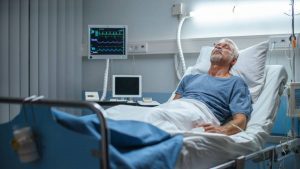
More than 70% of beds allocated for patients with COVID-19 are provided with oxygen today in Ukraine, Deputy Minister of Health, Chief Sanitary Doctor of Ukraine Viktor Liashko said.
“Today, more than 70% of all beds allocated for COVID-19 are provided with oxygen. Now 55-60% of those hospitalized need oxygen treatment,” Liashko wrote on his Facebook page.
He said that 64,349 beds have been redesigned in hospitals to provide medical care for people with COVID-19, of which 44,436 are oxygen beds, which is almost 70% of all allocated beds.
“Today in hospitals we have 29,487 free beds with oxygen. On average, 55-60% of those hospitalized with COVID-19 need oxygen support,” he said.
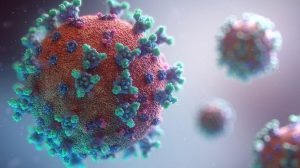
The neighboring countries of Ukraine, in addition to Poland, Belarus and the Russian Federation, are in the “red” zone for COVID-19, according to data published on the website of the Ministry of Health as of December 24.
The “red” zone includes countries with an incidence rate per 100,000 population over the past 14 days higher than in Ukraine (374). There are 45 countries in total.
Of the closest neighbors of Ukraine, the “red” zone includes Slovakia (634,900 cases of COVID-19 per 100,000 population), Moldova (460,400), Romania (400,300) and Hungary (521,700).
Lithuania, Georgia, Slovenia, U.S., Montenegro, Sweden, the Netherlands, Czech Republic, Switzerland, Great Britain, Turkey, Austria, Germany are also among the countries of the “red” zone.
The list of countries of the “green” zone includes, in particular, Italy, Israel, Belgium, France, Canada, Spain, Greece, Japan, India, and Egypt.
Of the closest neighbors of Ukraine, the “green” zone includes Belarus (279 cases per 100,000 of the population), the Russian Federation (206,900) and Poland (366,700).
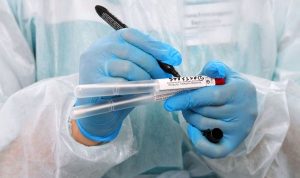
The test systems that are used in Ukraine can detect a mutated strain of coronavirus, which was recorded in the UK, Ukrainian Health Minister Maksym Stepanov told reporters on Thursday.
“The complexity of the situation with the mutated strain of coronavirus in the UK is that, according to preliminary data, it is 70% more infectious. At the same time, they have no evidence that it causes more complications, more severe disease or increased mortality. We increased control. Our test systems are able to detect this strain,” he said.
The minister noted that no cases of the mutated strain of coronavirus have been registered in Ukraine yet.
“We have a small number of flights from the UK. Basically, our citizens, who work there or study, come. We do not consider it necessary to close air traffic and then send planes to pick up our citizens,” Stepanov added.
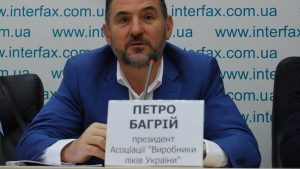
Pharmaceutical manufacturers have overcome the logistics problems that arose at the beginning of the COVID-19 pandemic and the shortage of certain active pharmaceutical ingredients (APIs), said President of the Association of Manufacturers of Medications of Ukraine (AMMU) Petro Bahriy.
“Among the general problems that have arisen with the introduction of quarantine [at the beginning of the epidemic], I would single out the problems of logistics, difficulties with the import, transportation of pharmaceutical products and their registration in connection with closed borders, as well as problems with the so-called ‘anticovid’ goods, for which there is an increased demand today,” he said in an exclusive interview with Interfax-Ukraine.
Bahriy noted that the price of some APIs of drugs used in the treatment of COVID-19 and complications of this disease has grown significantly in the global market – there are problems with production due to delays in deliveries.
“This is not a critical situation for the industry as a whole. We have to restructure, place orders earlier, realizing that delivery times will be longer than they were before the pandemic. For the entire time of the pandemic, consumers have not particularly felt a shortage of medicines,” he said.
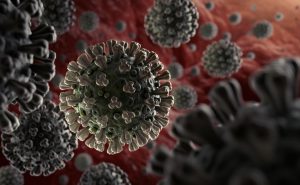
Prime Minister of Ukraine Denys Shmyhal has met with Regional Director for Europe of the World Health Organization (WHO) Dr. Hans Kluge, the parties discussed the fight against COVID-19 in Ukraine.
“Ukraine fully supports WHO in its efforts to ensure adequate testing and approval of vaccines, and advocates for equitable distribution of vaccines in a spirit of global solidarity. I am convinced that the Cooperation Agreement between Ukraine and WHO lays a solid foundation and contains a clear roadmap for our expanded cooperation,” the press service of the government quoted Shmyhal as saying.
The head of government stressed that today the development of safe and effective vaccines is the way out of the pandemic.
“Ukraine is a member of the COVAX Global Fund initiative, thanks to which we expect to receive the required amount of vaccines in the first quarter of the next year. At the same time, we would be grateful for help in obtaining a certain amount of vaccines faster,” the prime minister said.
Shmyhal noted that Ukraine is also considering the possibility of producing vaccines using its own pharmaceutical facilities, provided that they meet the necessary requirements of the developer company.
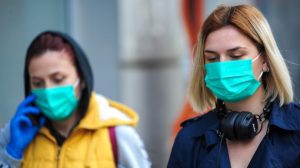
The Cabinet of Ministers of Ukraine has approved a list of lockdown restrictions that will have effect throughout Ukraine from December 19, 2020.
According to the press service of the government, from December 19, 2020, new restrictions will apply throughout Ukraine.
In particular, the new restrictions prohibit: holding mass events in educational institutions (performances, celebrations, concerts) with the participation of children from more than one group or class and in the presence of visitors; holding festive events, banquets, master classes, public events in entertainment and catering establishments; reception of visitors in museums, exhibitions, galleries, if there are more than one person per ten square meters; catering work from 23:00 to 07:00 (except for delivery and take-away orders). Settlement transactions are terminated after 22:00. On the night from December 31 to January 1, the work of restaurants and cafes will be allowed until 01:00.
As for religious events: indoors, subject to the presence of more than one person per five square meters; in the open air, provided that the distance of one and a half meters between those present is not observed.
In addition, the previous restrictions will apply. In particular, it is prohibited: to stay in public transport and public places without wearing a mask, as well as being on the street without identity documents; unauthorized leaving of the place of isolation or observation; holding mass cultural (including concerts), sports, social, advertising and other events in which more than 20 people take part and the distance of one and a half meters between the participants is not maintained (exception is official and professional sports events without spectators, examinations for notaries and measures necessary to ensure the work of the authorities); operation of cinemas and cultural institutions with more than 50% of seats in one hall; there are more passengers in passenger transport than the number of seats (except for the metro); holding discos, nightclubs and catering establishments with leisure organizations; accommodation in catering establishments for more than four adults at the table and when the distance between the tables is less than two meters.
The work of business entities in which employees are not provided with masks, and markings are not applied at a distance between clients of one and a half meters, and visitors do not have properly dressed personal protective equipment; border crossing by foreigners without insurance policy (with some exceptions); the activities of accommodation institutions (except for hotels, rehabilitation centers for people with disabilities, health resorts); visiting educational institutions by groups of more than 20 people, except for institutions of preschool, general secondary, extracurricular and specialized art education; visiting educational institutions in the case when more than 50% of students and staff of an educational institution are on self-isolation; carrying out planned hospitalization measures (except for palliative care, obstetrics, newborns, obstetrics, treatment of cancer patients, highly specialized (tertiary) medical care and other emergency medical care); work of gyms and fitness centers, if there is more than one person per 20 square meters; visiting points (places) of temporary detention of persons, points of temporary stay of foreigners and stateless persons, as well as points of accommodation of refugees; crossing the entry-exit checkpoint in the temporarily occupied territories of CADLO and Crimea by foreigners without an insurance policy (with some exceptions); visits by unauthorized persons to social security institutions in which certain categories of citizens are located (elderly people, war veterans, persons with disabilities, mental disorders, etc.).